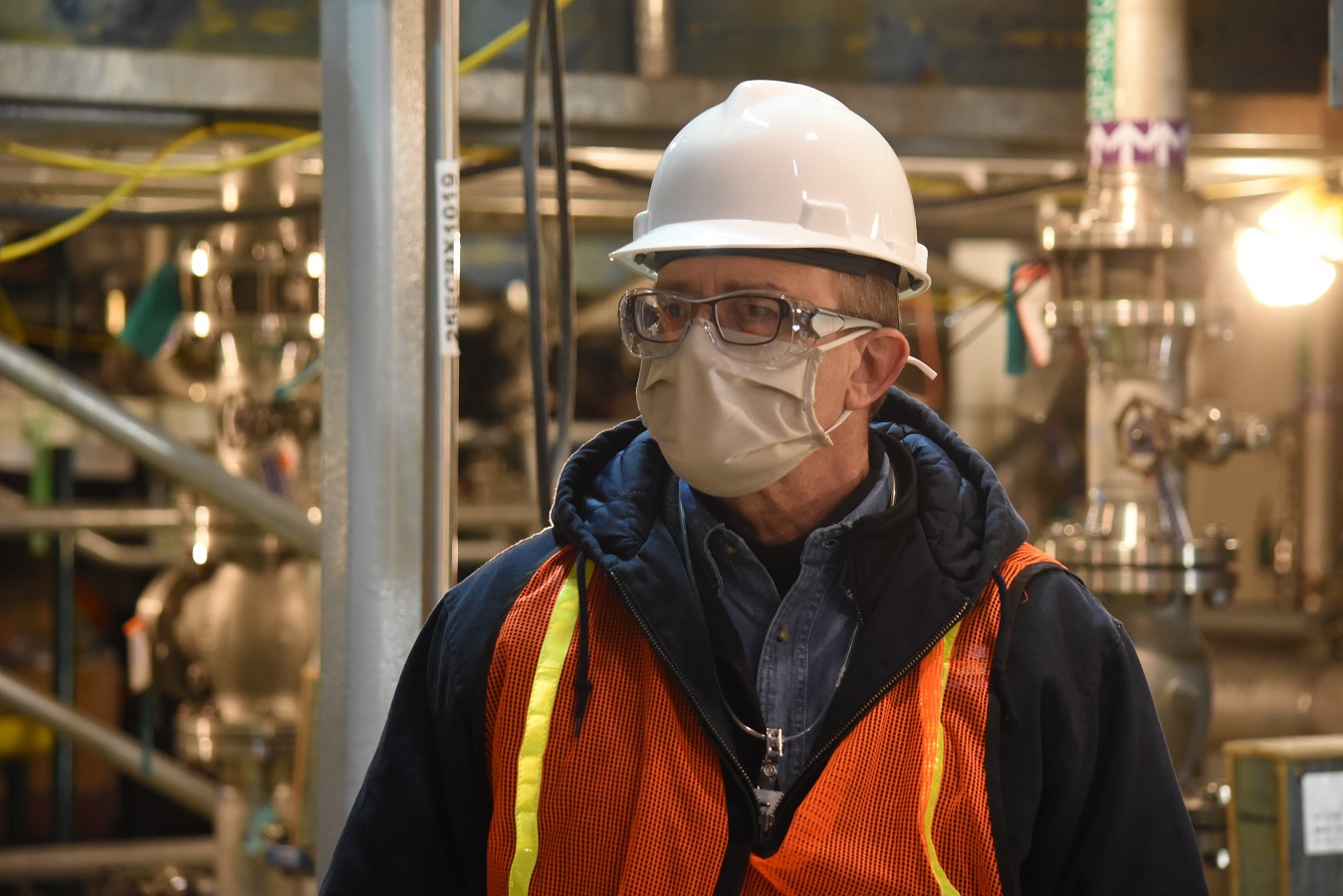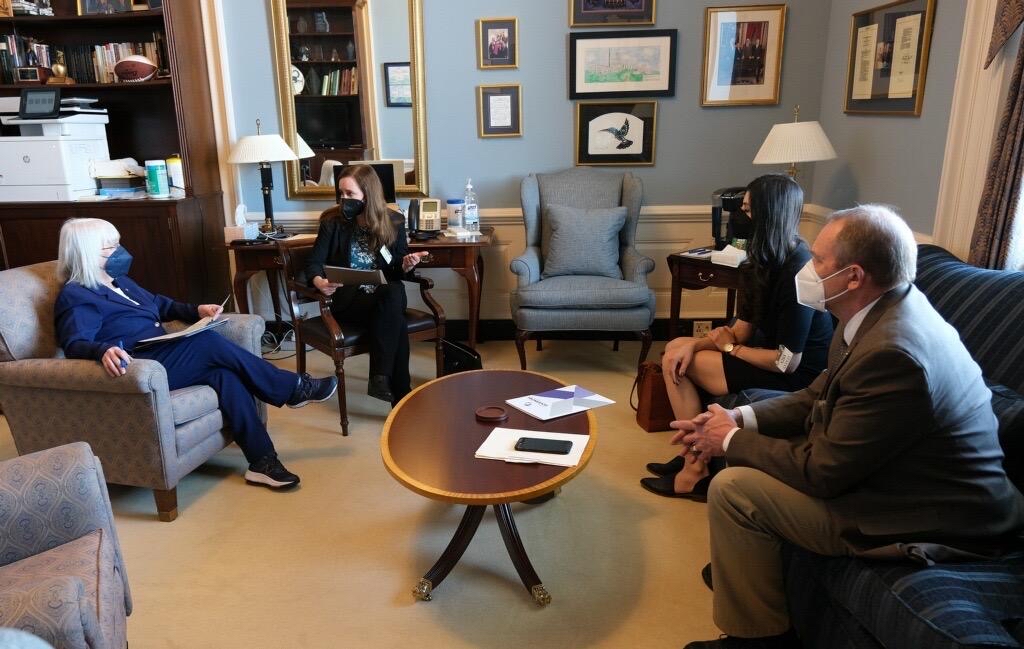
Former Nuclear Waste Program Manager David Bowen at Hanford's Waste Treatment Plant in 2021. (Courtesy, U.S. Department of Energy)
In February, our Nuclear Waste Program Manager departed for an exciting new role as Region Director of Ecology’s Central Regional Office in Union Gap. Before David left for his new position, we sat down to reflect on his time in Tri-Cities the last three years leading our team regulating cleanup of the Hanford Site.
On the complex work
What brought you to the complex world of Hanford from your previous position at Ecology?
The unique challenge of Hanford being a one-of-a-kind project that was complex, challenging, and important for the region was what motivated me to pursue this opportunity. The Nuclear Waste Program is a small version of the entire agency with elements of air and water quality; toxic, hazardous and solid waste; and environmental and shorelands activities. Hanford provided me with the opportunity to expand my knowledge and interactions across the agency. It was a very rewarding and humbling experience.
How is Hanford different from what you expected?
I knew it was complex – I didn’t realize just how complex and the reasons why. I learned about the many perspectives on what priorities are, and at the end of the day what the definition of clean should be. David Bowen at Hanford's Cold Test Facility in 2022.
On our successes
What have been some of our program’s greatest achievements in your time here?
Recruitment was heavy on my mind as we exited the COVID shutdown. We went from a 36 percent vacancy rate to an industry norm of about nine percent, which is a huge impact on our ability to be responsive and support cleanup as efficiently as possible.
We also wrapped up a lot of outstanding litigation and have a more transparent dialogue with our permittees and their contractors, which is crucial for long-term success at Hanford.
The last and likely most important accomplishment is having a diverse set of stakeholders and groups come together with one voice and lean into the need for Hanford funding that supports the actual cleanup needs – my thanks to the team, Tribes, Governor’s Office, Congressional Delegation, local community members, and regional groups that joined that effort.
Ecology Director Laura Watson and David Bowen speaking with U.S. Sen. Patty Murray in Washington D.C.
As program manager, what’s been one of your greatest personal accomplishments at Hanford?
Honestly, for me it was getting up to a level of knowledge that allowed me to adequately represent the Nuclear Waste Program team internally at Ecology, but more importantly to the Tribes, public, stakeholders, and Washington DC delegation. The patience of the team in supporting me and teaching me what I needed to know was above and beyond the call.
Looking ahead
In your opinion, what are some of the most challenging upcoming projects at Hanford?
Beyond the need to provide constant pressure on budget needs, the High-Level Waste Facility and solutions to treatment of the tank waste in the western portions of the site will likely be the most challenging – they are both in early stages and I believe on the correct path.
What advice do you have for your successor?
Keep the lines of communication open, listen to understand, be transparent in our perspective and where we just can’t compromise, and honor relationships. The team has all the expertise and knowledge to find solutions. Solutions-based conversations will get you there.
David Bowen participating in an interview with a reporter.
Any final thoughts?
Working for the Nuclear Waste Program team has been an honor and in the top three career accomplishments in my life – tied right there with being a county-wide elected official and creation of the Teanaway Community Forest in the upper Yakima River Basin.
Thanks to everyone on the team and the confidence Ecology Director Laura Watson and Deputy Director Heather Bartlett put in me to take on this challenging but rewarding role.


